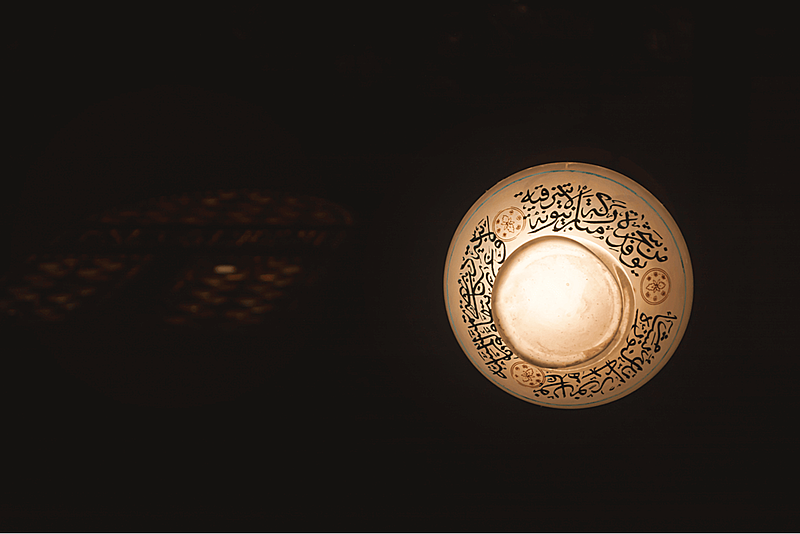How To Pray Tahajjud and Perform Qiyamullail
There are many merits mentioned in the Quran for those who not only believe and do righteous deeds. These include the acts of worship, especially that which is considered to be obligatory. Upon fulfilling what is sought by every individual, some would increase their capital with additional merits; the Sunnah acts of worship.
Read: 4 Advices from Imam Al-Ghazali on worship

These additional acts of worship would help us to attain closeness with Allah s.w.t. and may very well even change the course of our lives, both in this world and the next. In fact, we are encouraged to invest a portion of the night to observe these Sunnah acts of worship. This is acknowledged by Allah s.w.t. Himself as mentioned in the Quran:
إِنَّ نَاشِئَةَ ٱلَّيْلِ هِىَ أَشَدُّ وَطْـًٔا وَأَقْوَمُ قِيلًا. إِنَّ لَكَ فِى ٱلنَّهَارِ سَبْحًا طَوِيلًا. وَٱذْكُرِ ٱسْمَ رَبِّكَ وَتَبَتَّلْ إِلَيْهِ تَبْتِيلًا
Indeed, worship in the night is more impactful and suitable for recitation. For during the day you are over-occupied (with worldly duties). (Always) remember the Name of your Lord, and devote yourself to Him wholeheartedly.
(Surah Al-Muzzammil, 73:6-8)
Investing our night with acts of worship may also help us develop sincerity in observing our deeds as there is usually no one else to witness our struggle and submission to Allah s.w.t. during the late hours. The deeds that are performed at night are known as Qiyamullail.
What is Qiyamullail and what are its merits?
Qiyamullail is to enliven the nights with any acts of worship such as the Sunnah prayers, recitation of the Quran or heartful invocations to Allah s.w.t.
Although Qiyamullail refers to standing in the night with acts of worship, it does not require us to spend the whole night itself to attain its rewards. It is fine to spend even a brief period of it. Allah s.w.t. says in the Quran:
قُمِ ٱلَّيْلَ إِلَّا قَلِيلًا. نِّصْفَهُۥٓ أَوِ ٱنقُصْ مِنْهُ قَلِيلًا. أَوْ زِدْ عَلَيْهِ وَرَتِّلِ ٱلْقُرْءَانَ تَرْتِيلًا
stand at night (for prayer) except a little - half of it, or a little less, or make it a little more; and recite the Qur'an (properly) in a measured way.
(Surah Al-Muzammil, 73:2-4)

Observing the Qiyamullail would entail many rewards and merits. In a hadith, the Prophet s.a.w. said:
عَلَيْكُمْ بِقِيَامِ اللَّيْلِ فَإِنَّهُ دَأْبُ الصَّالِحِينَ قَبْلَكُمْ وَهُوَ قُرْبَةٌ إِلَى رَبِّكُمْ وَمَكْفَرَةٌ لِلسَّيِّئَاتِ وَمَنْهَاةٌ لِلإِثْمِ
Hold fast to Qiyamullail, for it is the practice of the righteous before you, and indeed it is a means of nearness to Allah, a means of expiation for bad deeds, and a barrier from acts of disobedience
(Sunan At-Tirmizi)
The Qiyamullail is indeed a life-changing experience that can be a means for repentance, redemption and opening the doors of provisions from Allah s.w.t. In another hadith, the Prophet s.a.w. said:
يَنْزِلُ رَبُّنَا تَبَارَكَ وَتَعَالَى كُلَّ لَيْلَةٍ إِلَى السَّمَاءِ الدُّنْيَا حِينَ يَبْقَى ثُلُثُ اللَّيْلِ الآخِرُ يَقُولُ مَنْ يَدْعُونِي فَأَسْتَجِيبَ لَهُ مَنْ يَسْأَلُنِي فَأُعْطِيَهُ مَنْ يَسْتَغْفِرُنِي فَأَغْفِرَ لَهُ
Our Lord, The Blessed, The Superior, descends to the lowest Heaven when the last third of the night remains, saying: “Is there anyone to invoke Me, so that I may respond to the invocation? Is there anyone to ask Me, so that I may grant him his requests? Is there anyone seeking My forgiveness, so that I may forgive him?”
(Sahih Al-Bukhari)
From this hadith, scholars have concluded that the last third of the night is one of the most sought after periods of the night itself. Amongst many is the late scholar Shaikh Wahbah Az-Zuhaili who added that the second third of the night should not be overlooked as well, citing:
وَبِٱلْأَسْحَارِ هُمْ يَسْتَغْفِرُونَ
and in the hours before dawn, they used to pray for forgiveness
(Surah Adh-Dhariyat, 51:18)
We may choose to wake up on either third of the night or even both. One of the many Sunnah acts of worship that can be performed is the Sunnah Tahajjud prayers or also commonly known within our community as Solat Tahajjud.
What is Solat Tahajjud?
Tahajjud linguistically means to abandon sleep or stay awake. Allah s.w.t. says in the Quran:
وَمِنَ ٱلَّيْلِ فَتَهَجَّدْ بِهِۦ نَافِلَةً لَّكَ عَسَىٰٓ أَن يَبْعَثَكَ رَبُّكَ مَقَامًا مَّحْمُودًا
and during the night wake up and pray, as an extra offering of your own, so that your Lord may raise you to a (highly) praised status.
(Surah Al-Isra, 17:79)

In the religious legalistic term, the Sunnah Tahajjud Prayer or Solat Tahajjud is a Sunnah prayer performed after observing the Isyak prayer and after (waking up from) a sleep even if it is a short nap.
As seen in the verse, Allah s.w.t. will raise those who are able to observe the Sunnah Tahajjud prayer in the hereafter.
What is the difference between a Tahajjud prayer and Qiyamullail?
Scholars differ in defining Tahajjud and Qiyamullail. According to the Syafiee Mazhab, Qiyamullail is all the Sunnah prayers (nawafil) and other acts of worship performed after the Isyak Prayer until Subuh. Whereas the Tahajjud prayer is a Sunnah prayer (excluding other acts of worship) that requires a person to sleep first even if it is just a short nap.
Thus, according to this definition, the Sunnah Tahajjud prayer is part of the overarching practice of the Qiyamullail activities that is only performed if the person is preceded by sleep even if it is just for a short while.
While the above is the view according to the Syafiee Mazhab, there are also some scholars who do not necessitate sleep in order to perform the Tahajjud prayer.
How to pray the Tahajjud prayer and how many raka’at are there?
The Tahajjud prayer is just like any other Sunnah prayer. It is a minimum prayer of two raka’at as mentioned by the Prophet s.a.w:
إِذَا قَامَ أَحَدُكُمْ مِنَ اللَّيْلِ فَلْيَفْتَتِحْ صَلاَتَهُ بِرَكْعَتَيْنِ خَفِيفَتَيْن
When any one of you gets up at night, he should begin the prayer with two brief raka’at
(Sahih Muslim)
1. The Sunnah Tahajjud prayer starts with reciting the Niyyah (Intention) to pray:
أُصَلِّي سُنَّةَ التَهَجُّد رَكعَتَينِ لِلَّهِ تَعَالَى
Usolli sunnata-tahajjud rak'ataini lillah ta'ala
I intend to pray the Sunnah prayer of Tahajjud two raka'at for Allah s.w.t.
2. Give the Takbir (Takbiratul-Ihram) and perform a two raka’at prayer
3. End the prayer after two raka’at with salam.
The maximum number of raka’at for the Sunnah Tahajjud prayers is not limited to any specific number. You may perform as many you want, as long as it is done in pairs. Should you wish to pray 4 raka’at of Sunnah Tahajjud prayer, for example, you may not perform it with 4 raka’at successively without any intervals of salam like the Isyak prayer. In other words, you will have to perform the salam at intervals between every two raka’at. The Prophet s.a.w. said:
صَلاَةُ اللَّيْلِ مَثْنَى مَثْنَى
The night prayer is offered in pairs (as two raka’at) followed by a pair (of two raka’at)
(Sahih Al-Bukhari)
Are there any specific supplications to make for the Tahajjud prayer?
Upon making the Tahajjud, we may invoke Allah s.w.t. with any heartfelt supplications, even that which is never expressed and deeply reserved in our hearts. Dua is a special and exclusive conversation between us and our Lord.
However, there are some narrations of the Prophet making this Dua for us to benefit and learn from:
اللَّهُمَّ لَكَ الْحَمْدُ أَنْتَ قَيِّمُ السَّمَوَاتِ وَالأَرْضِ وَمَنْ فِيهِنَّ وَلَكَ الْحَمْدُ، لَكَ مُلْكُ السَّمَوَاتِ وَالأَرْضِ وَمَنْ فِيهِنَّ، وَلَكَ الْحَمْدُ أَنْتَ نُورُ السَّمَوَاتِ وَالأَرْضِ، وَلَكَ الْحَمْدُ
أَنْتَ الْحَقُّ، وَوَعْدُكَ الْحَقُّ، وَلِقَاؤُكَ حَقٌّ، وَقَوْلُكَ حَقٌّ، وَالْجَنَّةُ حَقٌّ، وَالنَّارُ حَقٌّ، وَالنَّبِيُّونَ حَقٌّ، وَمُحَمَّدٌ صلى الله عليه وسلم حَقٌّ، وَالسَّاعَةُ حَقٌّ،
اللَّهُمَّ لَكَ أَسْلَمْتُ، وَبِكَ آمَنْتُ وَعَلَيْكَ تَوَكَّلْتُ، وَإِلَيْكَ أَنَبْتُ، وَبِكَ خَاصَمْتُ، وَإِلَيْكَ حَاكَمْتُ، فَاغْفِرْ لِي مَا قَدَّمْتُ وَمَا أَخَّرْتُ، وَمَا أَسْرَرْتُ وَمَا أَعْلَنْتُ، أَنْتَ الْمُقَدِّمُ وَأَنْتَ الْمُؤَخِّرُ، لاَ إِلَهَ إِلاَّ أَنْتَ
O Allah! All the praises are for you, You are the Sustainer of the Heavens and the Earth, And whatever is in them. All the praises are for You; You have the possession of the Heavens and the Earth And whatever is in them. All the praises are for You; You are the Light of the Heavens and the Earth And all the praises are for You;
You are the Truth and Your Promise is the truth, And to meet You is true, Your Word is the truth, And the Paradise is true, And Hellfire is true, And all the Prophets are true; And Muhammad s.a.w. is true, And the Day of Resurrection is true.
O Allah! to You I submit, in You I believe and to You do I rely upon. And to You I repent, And by You I face my adversaries, And to You I will be judged. So forgive me my previous and later sins; and that which I concealed and revealed; You are the One Who brings forth and suspends. There is none to be worshipped but you
(Sahih Al-Bukhari)
What other Sunnah prayer can we observe to enliven the night with Qiyamullail?
If we have not had our sleep yet to perform the Tahajjud prayer, we may also observe the Sunnah Qiyamullail prayers. These prayers are also casually known amongst many as ‘Solat al-Lail’ or ‘Solat Malam’.
Additionally, you may wish to observe the Sunnah Taubah prayer (repentance), Sunnah Hajat prayer or Sunnah Istikhara. All the mentioned Sunnah prayers are of two raka’at just like the Sunnah Tahajjud prayer, which entails bountiful rewards of its own if performed.
After performing any of the mentioned Sunnah prayers, you may wish to end the night with the Sunnah Witr prayer or Solat Witr.
What is Solat Witr and how to pray Solat Witr?
Solat Witr is a Sunnah prayer that is done after the obligatory Isyak prayer. Although the Witr prayer is not obligatory, the Prophet s.a.w. never missed it. He once mentioned in a hadith:
إِنَّ اللَّهَ وِتْرٌ يُحِبُّ الْوِتْرَ فَأَوْتِرُوا يَا أَهْلَ الْقُرْآنِ
Indeed Allah is Witr (One), and He loves Al-Witr, so perform Al-Witr O people of the Qur'an
(Sunan At-Tirmizi)
Witr is a prayer with the raka’at of odd or uneven numbers. Its minimum raka’at is one while its maximum number of raka’at is eleven. Even if the minimum number of raka’at that we can perform is only one raka’at, it is not encouraged to normalise it. Thus, our scholars view that the more complete minimum raka’at for the Sunnah Witr prayer is three.

The best way to perform the Witr prayer of three raka’at is to pray two raka’at with a salam and then conclude with one raka’at with another salam. This accumulates to three raka’at.
It goes the same should we intend to increase the number of raka’at. For example, if we intend to pray 5 raka’at, we can pray in pairs - of two raka’at followed by another two raka’at - with a salam after each pair and then finally concluding it with one raka’at.
If we plan to perform the Tahajjud prayer, we can include Witr as part of our Tahajjud prayer that will conclude our night prayer.
Can the Tahajjud prayer still be performed if the Witr prayer has already been observed?
Although it is prefered for the Sunnah Witr prayer to be considered the concluding prayer of the night, one may still perform the Sunnah Tahajjud prayer after it. The Prophet s.a.w. said:
اجْعَلُوا آخِرَ صَلاَتِكُمْ بِاللَّيْلِ وِتْرًا
Make Witr as your last prayer at night
(Sahih Al-Bukhari)
Hence, if we’re unsure if we will be able to wake up before Subuh or in instances where intend to continue the Witr prayer right after performing the Sunnah Terawih prayers, we may still perform the Sunnah Tahajjud prayer after it. The Prophet s.a.w. mentioned:
مَن خَافَ أَنْ لا يَقُومَ مِن آخِرِ اللَّيْلِ فَلْيُوتِرْ أَوَّلَهُ، وَمَن طَمِعَ أَنْ يَقُومَ آخِرَهُ فَلْيُوتِرْ آخِرَ اللَّيْلِ، فإنَّ صَلَاةَ آخِرِ اللَّيْلِ مَشْهُودَةٌ، وَذلكَ أَفْضَلُ
He who apprehends that he may not get up in the later part of the night, should observe the Witr prayer in the first part of it; and he who is certain to get up in the last part of it, he should observe Witr at the end of the night, because Salat at the end of the night is attended (by the angels), and that is better.
(Sahihً Muslim)
In fact, we may see this in the practice of Sayyiduna Abu Bakr r.a. who chose to perform the Sunnah Witr prayer before sleeping. He would then wake up later to perform the Tahajjud prayer. Sayyiduna Umar r.a, however, would sleep first and then wake up for the Tahajjud prayer followed by concluding the night with the Witr prayer.
What if I’m not able to wake up before Subuh to pray the Tahajjud prayers?
If a person finds it hard to wake up at night for the Tahajjud prayer, one may consider filling in the night with Sunnah prayers or other worship activities before heading to bed. As mentioned, Qiyamullail does not require one to precede sleep.
One may also consider establishing the intention or ‘Niyyah’ to wake up for Tahajjud prayers before sleep. That also means making the right preparations like setting up the alarm clock or sleeping early. Never underestimate the significance of good intentions. If a person is still unable to wake up before Subuh, he/she would still have attained some of its rewards due to the intentions.
If we managed to wake up before Subuh, but find it hard to leave the bed and what more to stay awake, then we may consider reciting Zikir and invoke upon Allah s.w.t. the wishes of our hearts. It may be that by these considerable efforts, we are finally able to wake up before Subuh and pray Sunnah Tahajjud prayers.
Amongst many other ways of attaining its rewards, we may also consider praying both the Isyak and Subuh prayers in congregation even at the comfort of our homes. This is based upon the hadith of the Prophet s.a.w.
مَنْ صَلَّى الْعِشَاءَ فِي جَمَاعَةٍ فَكَأَنَّمَا قَامَ نِصْفَ اللَّيْلِ وَمَنْ صَلَّى الصُّبْحَ فِي جَمَاعَةٍ فَكَأَنَّمَا صَلَّى اللَّيْلَ كُلَّهُ
Whoever observes the Isyak prayer in congregation, it is as though he has prayed half of the night, and whoever has (also) prayed the Subuh prayer in congregation, it is as though he has prayed the whole night
(Sahih Muslim)
May Allah s.w.t. allow us to perform all the leads to His pleasure and may He accept all our deeds.
And Allah knows best.

